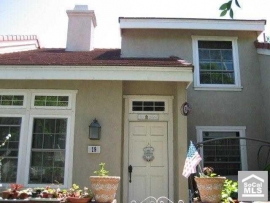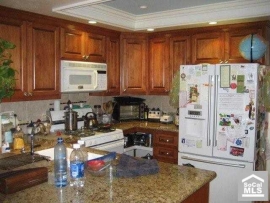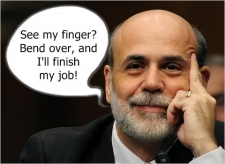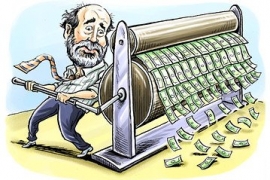HOA delinquencies have caused many associations to under-fund their reserves. Are assessments coming to make up for the losses? What other choice does an HOA have?
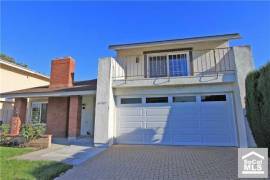
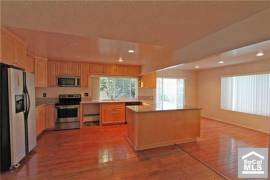
Irvine Home Address … 14941 GREENBRAE St Irvine, CA 92604
Resale Home Price …… $659,900

The road is long
With many a winding turn
That leads us to who knows where
Who knows where
But I'm strong
Strong enough to carry him
He ain't heavy, he's my brother
So on we go
His welfare is of my concern
No burden is he to bear
We'll get there
Hollies — He Ain't Heavy, He's My Brother
Are you ready to carry your neighbor.
Some time ago, I wrote about the problems California HOAs are having with delinquent properties the banks do not foreclose on.
The amend-extend-pretend policies of lenders is fraught with unintended consequences. The obvious costs to lenders is lost revenue from squatters who get to stay in their homes without making any payments, but lenders are not the only parties involved who aren't getting paid.
Local taxing authorities and Home Owners Associations (HOAs) also are not being paid. The taxes will get paid eventually because property tax obligations survive the foreclosure. Whatever bills the old owners left behind are the responsibility of the new owner. Bills due to HOAs are only paid after mortgage holders are paid in full. Since most delinquent homeowners are underwater, there is no equity left over to pay the HOA bills, and any delinquent amounts are not paid by the new owner. The costs of extinguished HOA dues are passed on to existing homeowners who are still paying their bills.
Home owners associations have only one recourse to compel an owner to pay their dues: foreclosure. In a normal real estate market — one where home owners have equity — the threat of foreclosure is an effective threat; however, when owners do not have equity and they are not paying their mortgage, HOAs have no leverage. HOAs are generally unwilling to foreclose because their ownership position after the foreclosure is subordinate to the surviving mortgages — an HOA foreclosure does not wipe out the superior liens. In other words, HOAs can take possession of an underwater property — which provides them no benefit — and in the process wipe out any claims to back HOA dues. Taking ownership of a property they cannot sell to a dues-paying owner does not help them.
Shared homeownership could mean paying your neighbors' bills
People in condo, co-op and town house communities may have to pick up the slack for missed dues when other owners walk away from their homes or lose them to foreclosure.
By Kathy M. Kristof — November 7, 2010
For those who have a lot of cash or can get credit, this could be an ideal time to buy a house — the foreclosure crisis has pushed prices down and interest rates are way low.
But beware if you are looking to buy a condominium, co-op, town house or other property that's part of a homeownership group. Another side effect of the foreclosure crisis is that you could end up responsible for some of your neighbors' bills.
That's because people in shared ownership communities chip in to pay the cost of maintaining the buildings and amenities such as swimming pools. Also, the funds, usually paid in monthly installments, are often used to pay for landscaping, as well as to insure the structures.
But when individual owners in a group walk away from their homes or lose them to foreclosures, the bills end up getting split by the remaining homeowners.
Sometimes those costs don't get passed on immediately. Instead associations have been known to let bills pile up, creating potentially devastating surprises for owners.
Can you imagine how bad the assessments are going to be in the North Korea towers? The dues there are $998 per month, and probably less than a third of the "owners" are paying them. Assessments of tens of thousands of dollars are inevitable.
"There's really a crisis within a crisis in the shared ownership community," said Gary Poliakoff, coauthor of "New Neighborhoods: The Consumer's Guide to Condominium, Co-op and HOA Living."
The Community Assns. Institute trade group recently reported that more than half of the nation's 310,000 community associations are struggling with "serious" or "severe" financial woes.
Some 59% of association managers reported that more than 3% of homes in their community groups were vacant, the study said, because the owners either had walked away from their mortgages or were unable to rent the homes. Some 65% of associations reported that more than 5% of their homeowners were delinquent on their monthly assessments.
"When some owners, including banks that have foreclosed on homes and now own them, don't pay their share, other homeowners often must make up the difference through higher regular assessments or special assessments," said Thomas M. Skiba, chief executive of the trade group.
If an association determines that it needs to levy a special assessment on homeowners, there's no legal limit on how high that assessment can be. Unlike rent, homeowner dues aren't subject to price controls.
And homeowners can't just decide not to pay. Associations can get legal judgments to allow them to take a portion of homeowners' wages or put liens on their properties.
"You are an owner, not a tenant," Poliakoff said. "You are responsible for paying a share of the expenses, no matter how high they might be."
To help avoid problems, check out the association thoroughly before you buy.
- Dig deep into financial records. Normally you are given a disclosure that reveals the level of dues. But you need more, Poliakoff said. You should get the association's financial statement and find out what expenses the complex is paying, and what percentage of its overall obligations is handled by the dues.
Associations should have a balanced budget that covers both current and anticipated costs, he explained. But an increasing number of associations are either dipping into reserves or putting off prudent saving for anticipated big expenses, such as roof repair, because of the financial crisis.
The Community Assns. Institute survey, for example, said 38% of associations have delayed capital improvement projects, 31% are contributing less to reserves, 23% have borrowed from reserves and 6% have borrowed from banks and other lenders. Any of these factors can be a warning flag of trouble ahead.
- Make sure the association has adequate insurance coverage. Owners normally insure their possessions and the interior of their units, but associations generally hold the policy on structures.
One complex recently burned down and the owners found out too late that the association had cut costs by letting the fire insurance policy lapse, Poliakoff said.
- Check into an association's reserves. Some states require that the associations maintain reserves for any expense that's likely to exceed threshold amounts, such as $10,000. In those states the association must have a reserve study showing what the anticipated costs are, when they're expected to be needed and how much money is set aside to handle them.
If the roof would cost $50,000 to repair and needs fixing each 10 years, for example, you'd expect that nearly half of that anticipated cost would be saved by year five. Even if a reserve study is not legally required, your association should have one.
- Look over the grounds. Some 35% of associations have reduced landscaping services and 12% are asking homeowners to do some work themselves, the Community Assns. Institute study said. If the grounds are not well-maintained, the value of a home is likely to diminish over time.
All good advice.
It's different in Nevada
One of the first things I learned when I started analyzing properties in Nevada is that their HOA liens suvive a foreclosure. Unlike California where this debt is wiped out and the debt is spread to all the owners, in Nevada, HOA liens survive, and like back taxes, they must be paid by the new owner of the property. Being familiar with the HOA problems brewing in Calfornia, I think the Nevada law is a good one.
However, Nevada does create its own problems. There is currently no limit on the collection fees the attorneys for Nevada HOAs can charge. I saw a recent property with a $380 outstanding HOA bill. After all the collection fees were added up, the final bill was over $3,800. That is highway robbery.
The good news is that HOAs in Nevada are solvent and well funded. The bad news is that attorneys are using extortion tactics to make a fortune off collecting for HOAs. In the end, this hurts the banks because they must lower their expectations at public auction because buyers there know they must reserve enough to pay off the HOAs. The more money that goes to paying off the HOAs, the less money is left to recover on the loan.
Ms. Imploding Ponzi 
Women were big participants in the housing bubble. Mary Tyler Moore would be proud of the independence demonstrated by the various spendthrifts during the bubble. Of course, swapping dependence upon men for dependence upon lenders isn't real liberation, it's merely becoming a slave to a different master. I wonder how many Ms. Ponzis are seeking out men to bail them out?
- The previous owner paid $293,000 on 4/29/1999. She used a $263,700 first mortgage and a $29,300 down payment.
- On 3/22/2001 she refinanced with a $300,700 first mortgage.
- On 11/14/2002 she obtained a $86,800 HELOC. That taste of kool aid sent her shoppping.
- On 7/2/2004 she enlarged her HELOC to $186,800. What do you think she spent that $100,000 on?
- On 3/16/2005 she obtained a $475,000 Option ARM with a 1% teaser rate and got a $77,000 HELOC.
- On 7/31/2006 she refinanced with a $650,000 first mortgage.
- On 8/30/2006 she obtained a stand-alone second for $125,000.
- On 1/11/2007 she got a third mortgage for $65,000.
- Total property debt was $840,000.
-
Total mortgage equity withdrawal was $576,300. That's a lot of trips to Nordstroms.

- She quit paying in mid 2007, and she was foreclosed on in March of 2008.
Foreclosure Record
Recording Date: 03/07/2008
Document Type: Notice of Sale
Foreclosure Record
Recording Date: 12/05/2007
Document Type: Notice of Default
Juggling with knives
The bank foreclosed and wiped out the second and third mortgages. They paid $675,750. The resold the property to the current sellers on 9/10/2008 for $610,000. Apparently the current owners — cash buyers from out of state — are worried about the strength of the market and have decided to sell.
It looks like the current owners improved in the property. Do you think they will get out without losing any money?


Irvine Home Address … 14941 GREENBRAE St Irvine, CA 92604 ![]()
Resale Home Price … $659,900
Home Purchase Price … $610,000
Home Purchase Date …. 9/10/2008
Net Gain (Loss) ………. $10,306
Percent Change ………. 1.7%
Annual Appreciation … 3.5%
Cost of Ownership
————————————————-
$659,900 ………. Asking Price
$131,980 ………. 20% Down Conventional
4.38% …………… Mortgage Interest Rate
$527,920 ………. 30-Year Mortgage
$127,160 ………. Income Requirement
$2,637 ………. Monthly Mortgage Payment
$572 ………. Property Tax
$0 ………. Special Taxes and Levies (Mello Roos)
$110 ………. Homeowners Insurance
$50 ………. Homeowners Association Fees
============================================ .jpg)
$3,369 ………. Monthly Cash Outlays
-$437 ………. Tax Savings (% of Interest and Property Tax)
-$710 ………. Equity Hidden in Payment
$211 ………. Lost Income to Down Payment (net of taxes)
$82 ………. Maintenance and Replacement Reserves
============================================
$2,515 ………. Monthly Cost of Ownership
Cash Acquisition Demands
——————————————————————————
$6,599 ………. Furnishing and Move In @1%
$6,599 ………. Closing Costs @1%
$5,279 ………… Interest Points @1% of Loan
$131,980 ………. Down Payment
============================================
$150,457 ………. Total Cash Costs
$38,500 ………… Emergency Cash Reserves
============================================
$188,957 ………. Total Savings Needed
Property Details for 14941 GREENBRAE St Irvine, CA 92604
——————————————————————————
Beds: 4
Baths: 2 full 1 part baths
Home size: 2,300 sq ft
($287 / sq ft)
Lot Size: 5,289 sq ft
Year Built: 1974
Days on Market: 16
Listing Updated: 40481
MLS Number: S637295
Property Type: Single Family, Residential
Community: Orangetree
Tract: Othr
——————————————————————————
Great Cul-de-sac inside tract location. Remodeled Kitchen with added Eating area. Upgrades in Kitchen include Granite Counters, upgraded cabinets, stainless steel appliances, wood flooring, Plantation Shutters and French Windows. Inside laundry area. Spacious Master bedroom with Balcony. Fireplace in Spacious Living room that has vaulted ceilings. Great Home!




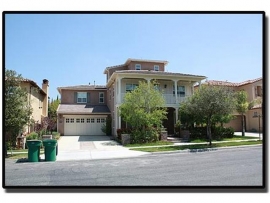
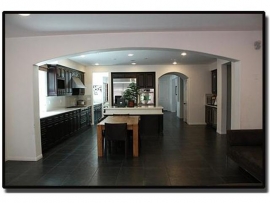











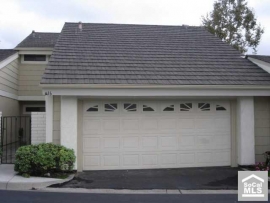
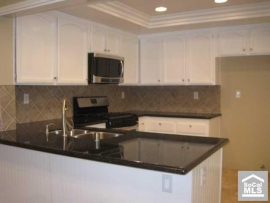



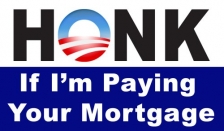
 The current cap on the HMID is $1,000,000 for first mortgages, and $100,000 for HELOCs
The current cap on the HMID is $1,000,000 for first mortgages, and $100,000 for HELOCs

 Reducing the home mortgage interest deduction would certainly take much of the air out of the bubble. It would reduce loan balances, and thereby lower offers of new buyers. This will lower prices for homes in areas where loans exceed $500,000. It would immediately reduce the net worth of homeowners in those areas. However, this policy would not impact anyone else. New buyers would be taking on less debt — which is a good thing. Renters would no longer be subsidizing the debts of homeowners through tax incentives — which is a good thing. And tax revenues would increase — which is why the commission is considering it.
Reducing the home mortgage interest deduction would certainly take much of the air out of the bubble. It would reduce loan balances, and thereby lower offers of new buyers. This will lower prices for homes in areas where loans exceed $500,000. It would immediately reduce the net worth of homeowners in those areas. However, this policy would not impact anyone else. New buyers would be taking on less debt — which is a good thing. Renters would no longer be subsidizing the debts of homeowners through tax incentives — which is a good thing. And tax revenues would increase — which is why the commission is considering it.
 There are only two consituencies that should oppose the changes to the HMID offered by the commission: (1) homeowners with mortgages over $500,000 — which isn't very many people, and (2) raw land owners in the path of development — which is very few people. Everyone else should be in favor of these changes because everyone else is sending their tax dollars to the two effected groups every year through the tax break.
There are only two consituencies that should oppose the changes to the HMID offered by the commission: (1) homeowners with mortgages over $500,000 — which isn't very many people, and (2) raw land owners in the path of development — which is very few people. Everyone else should be in favor of these changes because everyone else is sending their tax dollars to the two effected groups every year through the tax break.



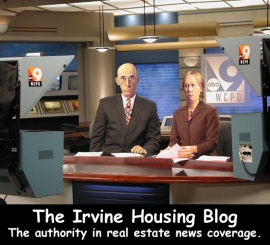
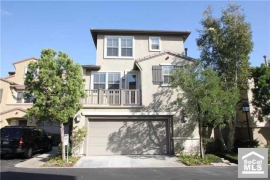
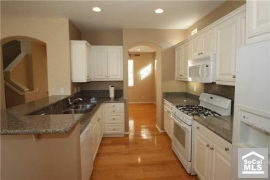





 Fed: Banks expect tight lending standards for foreseeable future
Fed: Banks expect tight lending standards for foreseeable future

